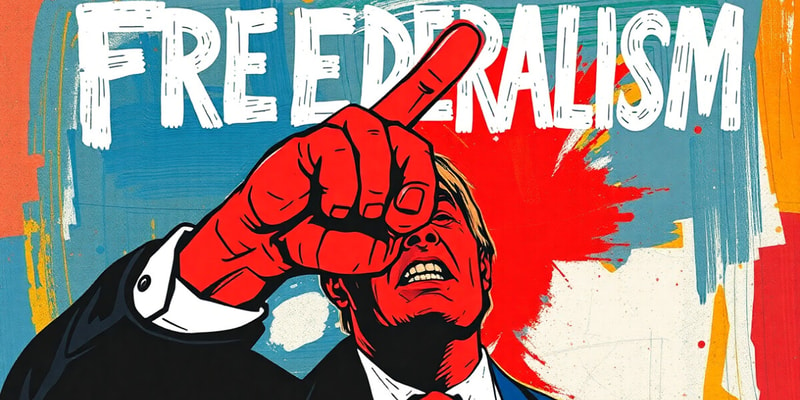Podcast
Questions and Answers
What was the primary reason American colonists justified their resistance against British rule?
What was the primary reason American colonists justified their resistance against British rule?
What warning does the Georgian citizen provide in regards to American liberties?
What warning does the Georgian citizen provide in regards to American liberties?
What was Benjamin Franklin's stance on the financial capacities of the Colonies with respect to the Stamp Act?
What was Benjamin Franklin's stance on the financial capacities of the Colonies with respect to the Stamp Act?
In his Farewell Address, what policy did George Washington recommend regarding foreign alliances?
In his Farewell Address, what policy did George Washington recommend regarding foreign alliances?
Signup and view all the answers
What significant outcome did the Pinckney's Treaty establish between the U.S. and Spain?
What significant outcome did the Pinckney's Treaty establish between the U.S. and Spain?
Signup and view all the answers
What social condition prompted elite Pennsylvanians to push for a stronger national government?
What social condition prompted elite Pennsylvanians to push for a stronger national government?
Signup and view all the answers
What were some of the popular measures that elite fears targeted during the post-Revolutionary period?
What were some of the popular measures that elite fears targeted during the post-Revolutionary period?
Signup and view all the answers
What was a major concern of the Anti-Federalists regarding the Constitution?
What was a major concern of the Anti-Federalists regarding the Constitution?
Signup and view all the answers
What criteria did the Supreme Court use to determine limitations on free speech in Schenck v. United States?
What criteria did the Supreme Court use to determine limitations on free speech in Schenck v. United States?
Signup and view all the answers
In the context of the provided texts, what did the Anti-Federalists believe about national representatives?
In the context of the provided texts, what did the Anti-Federalists believe about national representatives?
Signup and view all the answers
What was one of the outcomes of the Supreme Court's ruling in Schenck v. United States?
What was one of the outcomes of the Supreme Court's ruling in Schenck v. United States?
Signup and view all the answers
What alternative did the Anti-Federalists struggle to propose?
What alternative did the Anti-Federalists struggle to propose?
Signup and view all the answers
How did the text identify the approach of the Anti-Federalists to government power?
How did the text identify the approach of the Anti-Federalists to government power?
Signup and view all the answers
What was the general sentiment expressed in the quote regarding the struggle against force?
What was the general sentiment expressed in the quote regarding the struggle against force?
Signup and view all the answers
What perspective did the Supreme Court's ruling convey concerning the responsibilities of Congress?
What perspective did the Supreme Court's ruling convey concerning the responsibilities of Congress?
Signup and view all the answers
Study Notes
Anti-Federalist Concerns
- Anti-Federalists believed the Constitution did not adequately prevent government corruption and tyranny.
- They criticized the unchecked power granted to national representatives.
- They struggled to promote a nationwide alternative to their concerns.
Free Speech Limitations
- The Supreme Court established the "clear and present danger" doctrine in Schenck v. United States (1919).
- This doctrine limits free speech when it poses an imminent threat to public safety.
- The Court argued that speech posing a clear and present danger is not protected by the Constitution.
Justification for Revolution
- The Declaration of Causes and Necessity of Taking Up Arms (July 1775) defended the American colonies' decision to fight against British rule.
- It argued that the colonists fought not for conquest but for their freedom and property rights.
- The declaration accused the British of unprovoked aggression against the colonies.
Safeguarding Liberties
- A Georgian writer urged fellow citizens to protect their hard-won freedoms, comparing the Declaration of Independence to current laws.
- The writer warned against the dangers of encroaching upon liberties that were secured through costly sacrifices.
Colonial Opposition to Stamp Act
- Benjamin Franklin argued against the Stamp Act before the British Parliament in 1766.
- Franklin stated that the colonies lacked the financial resources to pay the stamp duty.
- Franklin highlighted the colonies' significant contributions to their defense during the recent war.
Washington's Neutrality
- In his Farewell Address (1796), President George Washington advised the United States to avoid permanent alliances with foreign nations.
- He argued that entanglement in European conflicts would jeopardize American peace and prosperity.
Pinckney's Treaty
- The Treaty of Friendship, Limits, and Navigation (known as Pinckney’s Treaty or the Treaty of San Lorenzo) was signed between Spain and the United States in 1795.
- It established peaceful relations and promoted mutual trade benefits between the two countries.
- The treaty secured American navigation rights on the Mississippi River.
The Rise of the Constitution
- Historian Terry Bouton argues that the Constitution was partly a response to widespread resistance to elite interests in states.
- Bouton suggests that elite Pennsylvanians sought to limit democratic influence in government.
- They saw the Constitution as a way to counter democratic policies that threatened their wealth and power.
Studying That Suits You
Use AI to generate personalized quizzes and flashcards to suit your learning preferences.
Description
Explore the critical views of Anti-Federalists and the pivotal Supreme Court rulings on free speech. This quiz also delves into justifications for the American Revolution, highlighting key documents and ideological struggles that shaped the nation. Test your knowledge of these foundational aspects of American democracy.




